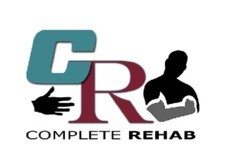 Have you ever had strange sensations that didn’t make sense with what you felt your nerves should actually be telling you? If you have experienced this, you may have neuropathy. It is caused when disease or injury causes dysfunction in signals from the central nervous system reaching the peripheral nervous system. The peripheral nervous system is meant to translate signals sent from the brain down your spinal cord then out to areas of your body such as your arms and legs. With neuropathy, something compromises this system which results in symptoms in the limbs of the body which can vary but are generally unpleasant.
Have you ever had strange sensations that didn’t make sense with what you felt your nerves should actually be telling you? If you have experienced this, you may have neuropathy. It is caused when disease or injury causes dysfunction in signals from the central nervous system reaching the peripheral nervous system. The peripheral nervous system is meant to translate signals sent from the brain down your spinal cord then out to areas of your body such as your arms and legs. With neuropathy, something compromises this system which results in symptoms in the limbs of the body which can vary but are generally unpleasant.
The result of the poor transmission of neurological signal through the nervous system results in neuropathy symptoms such as:
- Weakness
- Numbness
- Pain
- Burning
- Unexplained sensations
Common areas of occurrence of these neuropathy symptoms are:
- Legs
- Feet
- Arms
- Hands
- Other areas of the body
Why seek treatment for neuropathy symptoms?
- To decrease your discomfort
- To return your function back to normal
- To restore your quality of life
Though you may not have heard of rehabilitation for neuropathy, you have probably heard of Occupational therapy. At Complete Rehab, Brett Duffey is a practicing Occupational therapist who specializes in the identification and treatment of altered or uncomfortable symptoms caused by neuropathy. The irritation these misguided nervous system signals can cause is significant. It can be disruptive to normally positive sensations, disruptive to sleep, disruptive to concentration, and exhausting if the pain or symptoms are constant. If you have symptoms such as those listed above, we want to help you feel better. An official diagnosis by a doctor, which can be expensive or require painful testing, is not necessary for us to start helping you improve your quality of life. A prescription is NOT required in most cases. Medicare and all insurances will pay for some or all of this treatment. Schedule a consultation today if you think we may be able to help you.







